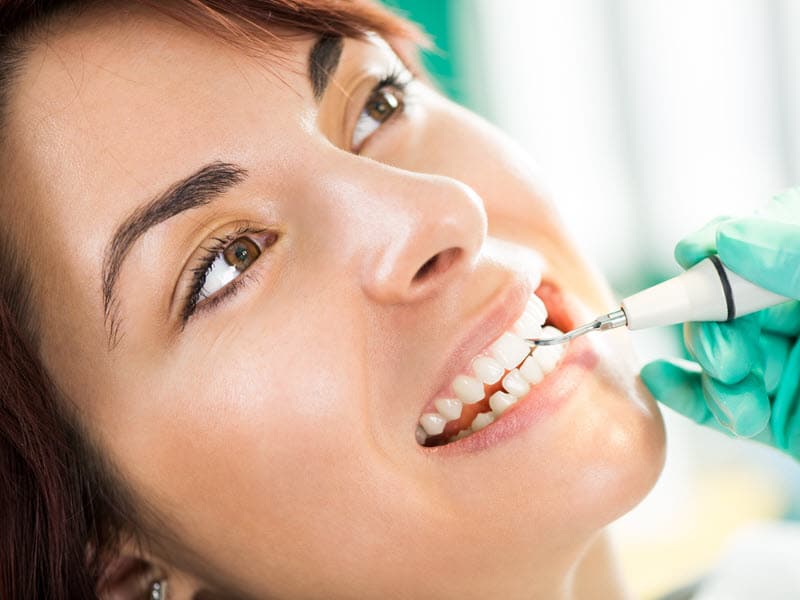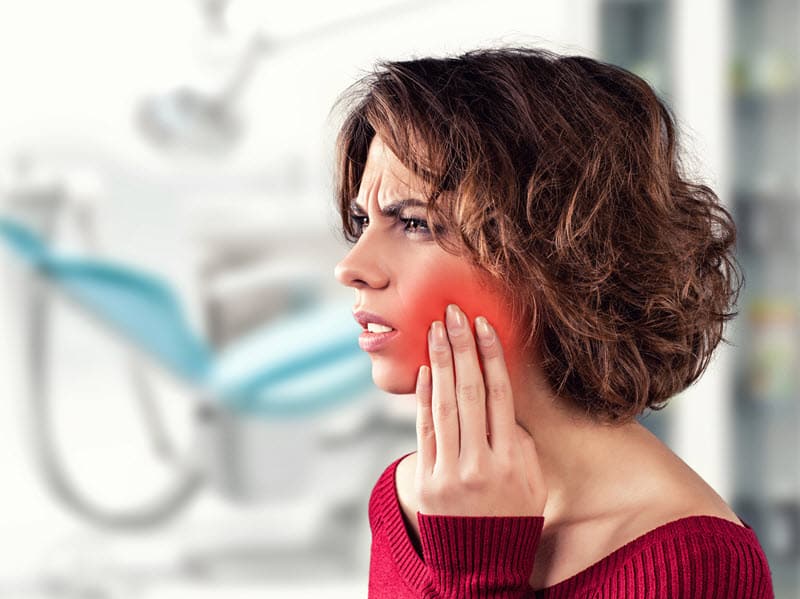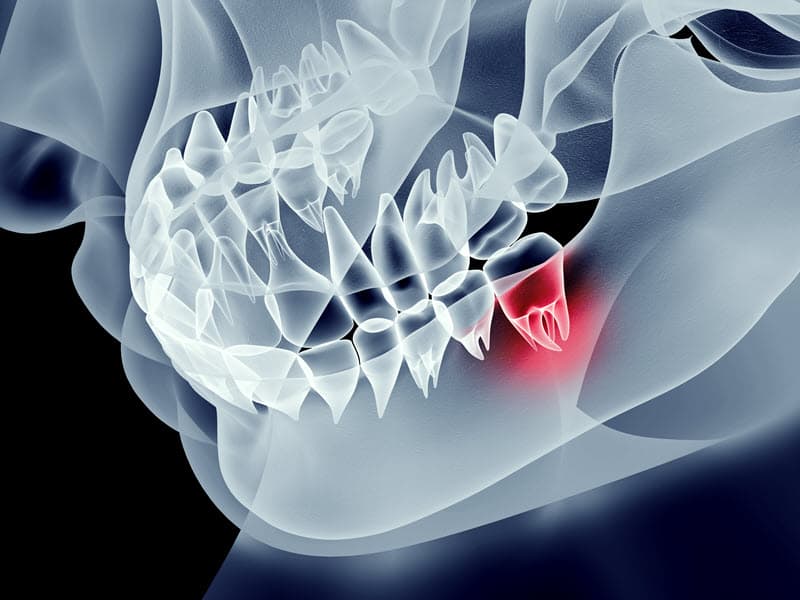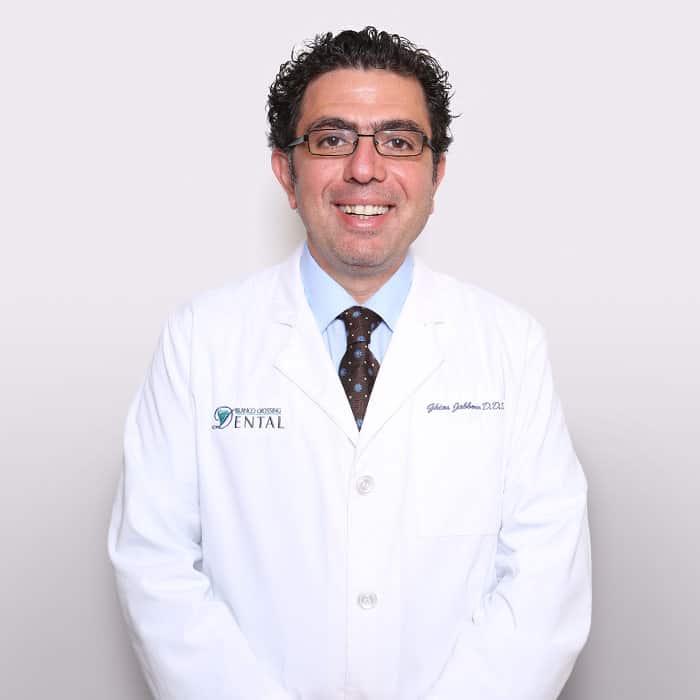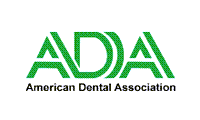Get Your Chipped Teeth Fixed Fast!
Chipped teeth are a common dental problem. They happen when a small piece of tooth breaks off. Potential Causes of chipped teeth include:
- Biting down on a hard object – like ice, hard candy, or nuts
- Accidental Trauma – Impact to your mouth can lead to a chipped tooth as well
- Sports – participating in impact sports – or even non impact sports – can lead to a chipped tooth – especially if you don’t have proper protection – like a mouth guard).
Chipped Tooth Pain
Superficial Chip
Significant Chipped Tooth
The larger and deeper the chip is, the more likely it is that the dentin beneath the enamel is exposed. A chip may even expose the pulp which contains nerves and blood vessels. In these instances, pain is much more likely to occur.
Additional Sources of Pain
Don't Wait to See a Dentist
Depending on the extent of the chipped or cracked tooth, it may be technically considered a dental emergency. Regardless of whether or not it is technically considered an emergency, not getting a broken tooth repair can lead to much more serious (and costly) problems.
Contact your dentist immediately to get proper diagnosis and treatment. If you’re dealing with a chipped tooth in the San Antonio / Stone Oak area, we recommend that you contact Dr. Jabbour and his dental team so that they can assess the severity of the chip and provide you with treatment options.
Treatments for Chipped Teeth
Dental Bonding
Porcelain Veneers
Dental Crowns
Dental crowns are a dental restoration that cover the entire tooth. They’re used for bigger chips or cracks. Crowns can be made of metal, porcelain, or both.
Getting a crown takes two visits. First, the dentist shapes your existing tooth that has been chipped. They take a mold and put on a temp crown. At the next visit, they place the final crown.
Crowns are strong and long-lasting tooth restoration procedures. They protect weak teeth from more damage. But they’re more costly than bonding or veneers.
Root Canal Treatment
Root canals are for chips that reach the tooth’s pulp. This is where the nerves and blood vessels are. If the pulp is damaged, you might feel pain.
The dentist removes the damaged pulp. They clean and seal the inside of the tooth. Then they put on a crown to protect it.
Root canals save teeth that might otherwise need to be pulled. They stop pain and prevent infection. The process takes one or two visits.
Dental Implants
A dental implant is commonly used as a missing teeth restoration for damaged or decayed teeth. With a tooth extraction, the dentist removes what remains of the damaged tooth. They put a metal post in your jaw that acts as a new root for your tooth.
After your jaw heals, they attach a crown to the post. This new tooth crown looks and works like a real one.
Implants are the most costly option – but also the most effective. A dental implant not only restores the function of the tooth, but it also prevents the shifting of surrounding teeth that can occur when you have a missing tooth.
Emergency Dental Care for Chipped Teeth
You need quick help when you chip a tooth. Call a dentist right away. Many offices offer same-day visits for urgent cases.
What should you do until your appointment?
Call your dentist for their instructions on what you should do until your appointment time. In the meantime, for most chipped teeth, you can follow the following instructions:
- First, rinse your mouth with warm water. This cleans the area and soothes pain.
- Next, apply a cold pack to your cheek. This cuts down swelling and eases discomfort.
- Take an over-the-counter pain reliever if needed. Ibuprofen or acetaminophen can help.
- Protect your tooth and gums. Cover any sharp edges with dental wax from a drugstore.
- Eat soft foods only. Avoid hot or cold items that may hurt your tooth.
Preventing Dental Injuries and Tooth Damage
Proper Dental Hygiene Routine
Use a Mouthguard for Sports and While You Sleep
Wear a custom fit dental mouthguard when playing sports. It shields your teeth from hits and falls. Custom-fit guards from your dentist work best. Stock guards from stores also help – but can be bulky and don’t fit quite as well.
Stress can make you grind your teeth at night (bruxism) . You’ll want to use a separate night time mouthguard to protect your teeth from night grinding.




